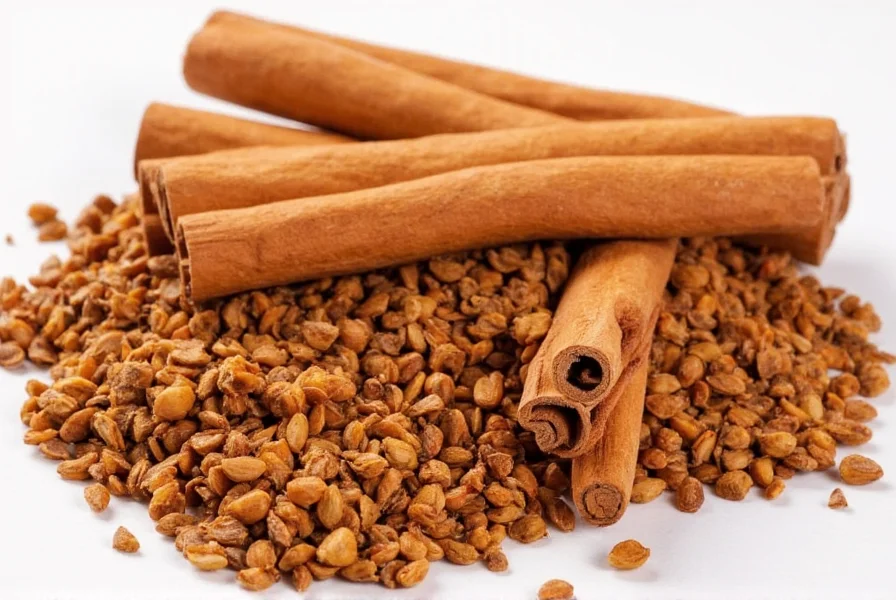When exploring the scientific benefits of Ceylon cinnamon, it's essential to distinguish this "true cinnamon" from the more common Cassia variety. Native to Sri Lanka, Ceylon cinnamon comes from the Cinnamomum verum tree and features a delicate, sweet flavor with multiple research-backed health advantages.
What Makes Ceylon Cinnamon Different
Ceylon cinnamon stands apart from Cassia cinnamon in both composition and safety profile. While Cassia contains high levels of coumarin (a compound potentially harmful to liver health in large doses), Ceylon contains only trace amounts. This distinction makes Ceylon the preferred choice for daily cinnamon consumption for health benefits. The characteristic differences include:
| Characteristic | Ceylon Cinnamon | Cassia Cinnamon |
|---|---|---|
| Scientific Name | Cinnamomum verum | Cinnamomum cassia |
| Coumarin Content | 0.017 mg/g (very low) | 3.74-7.99 mg/g (high) |
| Flavor Profile | Mild, sweet, complex | Strong, spicy, harsh |
| Texture | Multiple thin layers | Thick, hard single layer |
Evidence-Based Health Benefits of Ceylon Cinnamon
Blood Sugar Regulation and Insulin Sensitivity
Multiple studies demonstrate Ceylon cinnamon's role in managing blood glucose levels. A 2015 review in Nutrition Research Reviews found cinnamon improves insulin sensitivity and reduces fasting blood glucose by approximately 10-29% in people with type 2 diabetes. The active compounds, including cinnamaldehyde and polyphenols, enhance glucose uptake by cells and mimic insulin activity.

Potent Antioxidant Properties
Ceylon cinnamon ranks among the most antioxidant-rich spices. Research published in Oxidative Medicine and Cellular Longevity identified 41 distinct protective compounds in cinnamon, with particularly high concentrations of polyphenols. These antioxidants combat oxidative stress, potentially reducing cellular damage associated with aging and chronic diseases. The ORAC value (Oxygen Radical Absorbance Capacity) of Ceylon cinnamon significantly exceeds many fruits and vegetables.
Anti-Inflammatory Effects
Chronic inflammation contributes to numerous health conditions. Ceylon cinnamon contains potent anti-inflammatory compounds that inhibit inflammatory pathways. A 2015 study in Food Chemistry demonstrated that cinnamon extracts reduced inflammatory markers in human cells. This suggests potential benefits for conditions like arthritis and other inflammatory health conditions addressed by cinnamon.
Cardiovascular Protection
Heart health represents another significant area of Ceylon cinnamon cardiovascular benefits. Clinical research indicates cinnamon may improve several heart disease risk factors including:
- Reducing LDL ("bad") cholesterol levels
- Lowering triglycerides
- Moderating blood pressure
- Improving blood vessel function
A meta-analysis in Nutrition Journal concluded that cinnamon supplementation significantly improved lipid profiles in patients with metabolic disorders.
Safety Considerations and Recommended Usage
While Ceylon cinnamon offers numerous benefits, proper usage matters. The European Food Safety Authority recommends a maximum daily coumarin intake of 0.1 mg per kilogram of body weight. Due to its minimal coumarin content, Ceylon cinnamon allows for safe daily consumption of 0.5-3 grams (approximately 1/4 to 1 1/2 teaspoons) without concern.
Those taking diabetes medications should consult healthcare providers before regular cinnamon consumption, as it may enhance medication effects and potentially cause hypoglycemia. Pregnant women should also moderate intake, though culinary amounts generally pose no risk.
Practical Ways to Incorporate Ceylon Cinnamon
To maximize the health effects of Ceylon cinnamon in daily diet, consider these evidence-based approaches:
- Add 1/2 teaspoon to morning coffee or tea
- Mix into oatmeal or smoothies
- Sprinkle on roasted vegetables for savory dishes
- Use in place of sugar for flavor enhancement
- Create a cinnamon-honey tonic with warm water
For therapeutic benefits, consistent daily consumption yields better results than sporadic use. Look for "Cinnamomum verum" on product labels to ensure you're getting authentic Ceylon variety.
Current Research Limitations
While promising, cinnamon research has limitations. Many studies use concentrated extracts rather than culinary amounts, and human trials often involve small sample sizes. The optimal dosage of Ceylon cinnamon for specific health conditions requires further investigation. Cinnamon should complement—not replace—standard medical treatments for serious health conditions.

Conclusion
Ceylon cinnamon represents a flavorful addition to a health-conscious diet with multiple scientifically supported benefits. Its superior safety profile compared to Cassia cinnamon makes it ideal for regular consumption. When seeking the natural health benefits of true cinnamon, prioritize Ceylon variety and maintain realistic expectations about its role in overall wellness.











 浙公网安备
33010002000092号
浙公网安备
33010002000092号 浙B2-20120091-4
浙B2-20120091-4